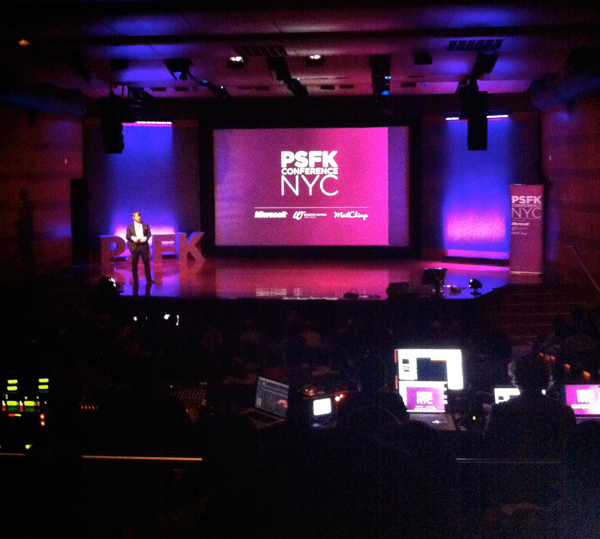Sharing Is Becoming a Natural Behavior

(Notes from the PSFK conference)
The recent one-day PSFK conference, “where disparate ideas can come together in new ways to fuel work that changes the world for the better, over-delivered on inspiration and proved to be the perfect intermission from the daily nine-to-five routine.
Though the conference’s speakers presented on a variety of topics, sharing emerged as a recurring theme linking their presentations. Whether it was sharing data to make the world a better place or sharing a teachable moment, it became apparent that sharing is becoming a natural behavior.
Three subthemes support this concept.
1.Curation.
Our digital lives encourage us to constantly produce data. We take this data, decipher it and make lists. We identify ourselves by these lists, and they become a representation of who we are. And, we have great flexibility with these lists—as we curate data and create online personas, we have the ability to create our self-identities in different ways. We have the opportunity to be something/someone that isn’t truly us.
2. Creation.
Jason Silva, in his presentation “The Creating and Sharing of Awe,” proposed that creation is a lonely experience. At first thought, it seemed a bit odd, but after further explanation, he made perfect sense. A) it only happens in our head and B) since no one can read our mind, it is solely up to us to take our inner thoughts and creative ideas and make them real and comprehensible.
Even if creation is viewed as a solitary process, human interaction is practically unavoidable. Any type of collaboration (or interaction), whether physical or digital, can spark creativity. This explains why much creation of happens with others. Through our experiences, interactions and collaborations with others, we can become inspired and cross boundaries that we otherwise wouldn’t have had the opportunity to cross.
3. Sharing data to make the world a better place.
By transforming digital services into an array of censor networks, we can provide help to people during — and possibly even before — a crisis or disaster. We have the ability to pull out real-time data faster to provide immediate solutions. As Robert Kirkpatrick from United Nations Global Pulse described, we live in a hyper-connected age with interconnected markets. Shock can ripple around the world. The true effects of global shock become evident years later through stats and data. When needs within a society change, so do its digital patterns.
As technology becomes seamlessly integrated into our daily lives, sharing is becoming a natural way of behavior. We have constant access to data. Any and everything we own is shared for mass consumption. We are constantly creating and curating data that can anticipate our needs. Technology makes it easy to share and we want to reap the benefits that go with it.
Back to all work